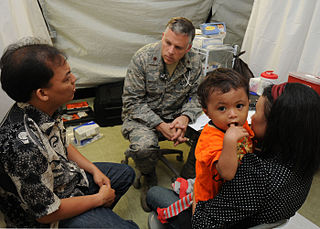Life
He holds academic positions at People's University of China and Peking Union Medical College in Beijing, China, and at the Bochum Center for Medical Ethics, which he helped found in 1985, in Bochum, Germany. He is editor of the Ethik in der Praxis / Practical Ethics series at Lit Verlag (Münster, Germany) and the Medizinethische Materialien, Bochum. He is the author of over 250 articles and books. He was a member of the International Bioethics Committee of UNESCO and is a member of many international and national advisory bodies and to philosophical and bioethical journals.
An expert in European continental philosophy, he has published widely on Hegel, Marx, 19th- and 20th-century German philosophy, and liberal political theory. During his research, teaching, and consulting in cultural risk assessment, research ethics, clinical ethics, and public-health ethics, Dr. Sass developed cross-cultural perspectives in the major fields of bioethics (based on concepts of personal and professional responsibility), regulated markets, mutual trust, and partnership ethics.
Dr. Sass is a Rechtsritter ("Knight of Justice") of the Johanniterorden, the Order of Saint John (Bailiwick of Brandenburg).

Informed consent is a principle in medical ethics, medical law and media studies, that a patient must have sufficient information and understanding before making decisions about their medical care. Pertinent information may include risks and benefits of treatments, alternative treatments, the patient's role in treatment, and their right to refuse treatment. In most systems, healthcare providers have a legal and ethical responsibility to ensure that a patient's consent is informed. This principle applies more broadly than healthcare intervention, for example to conduct research and to disclose a person's medical information.
Bioethics is both a field of study and professional practice, interested in ethical issues related to health, including those emerging from advances in biology, medicine, and technologies. It proposes the discussion about moral discernment in society and it is often related to medical policy and practice, but also to broader questions as environment, well-being and public health. Bioethics is concerned with the ethical questions that arise in the relationships among life sciences, biotechnology, medicine, politics, law, theology and philosophy. It includes the study of values relating to primary care, other branches of medicine, ethical education in science, animal, and environmental ethics, and public health.
Medical ethics is an applied branch of ethics which analyzes the practice of clinical medicine and related scientific research. Medical ethics is based on a set of values that professionals can refer to in the case of any confusion or conflict. These values include the respect for autonomy, non-maleficence, beneficence, and justice. Such tenets may allow doctors, care providers, and families to create a treatment plan and work towards the same common goal. These four values are not ranked in order of importance or relevance and they all encompass values pertaining to medical ethics. However, a conflict may arise leading to the need for hierarchy in an ethical system, such that some moral elements overrule others with the purpose of applying the best moral judgement to a difficult medical situation. Medical ethics is particularly relevant in decisions regarding involuntary treatment and involuntary commitment.

Forensic psychiatry is a subspeciality of psychiatry and is related to criminology. It encompasses the interface between law and psychiatry. According to the American Academy of Psychiatry and the Law, it is defined as "a subspecialty of psychiatry in which scientific and clinical expertise is applied in legal contexts involving civil, criminal, correctional, regulatory, or legislative matters, and in specialized clinical consultations in areas such as risk assessment or employment." A forensic psychiatrist provides services – such as determination of competency to stand trial – to a court of law to facilitate the adjudicative process and provide treatment, such as medications and psychotherapy, to criminals.
Against medical advice (AMA), sometimes known as discharge against medical advice (DAMA), is a term used in health care institutions when a patient leaves a hospital against the advice of their doctor. While leaving before a medically specified endpoint may not promote the patient's health above their other values, there is widespread ethical and legal consensus that competent patients are entitled to decline recommended treatment.
Medical humanities is an interdisciplinary field of medicine which includes the humanities, social science and the arts and their application to medical education and practice.

The Hastings Center is an independent, nonpartisan bioethics research institute and think tank based in Garrison, New York. It was instrumental in establishing the field of bioethics and is among the most prestigious bioethics and health policy institutes in the world.

Edmund Daniel Pellegrino was an American bioethicist and academic who served as the 11th president of The Catholic University of America (CUA) from 1978 to 1982. For 35 years, Pellegrino was a distinguished professor of medicine and medical ethics and the Director of the Kennedy Institute of Ethics at Georgetown University. Pellegrino was an expert both in clinical bioethics, and in the field of medicine and the humanities, specifically, the teaching of humanities in medical school, which he helped pioneer). He was the second layman to hold the position of President of Catholic University.

Sun Simiao was a Chinese physician and writer of the Sui and Tang dynasty. He was titled as China's King of Medicine for his significant contributions to Chinese medicine and tremendous care to his patients.

The philosophy of healthcare is the study of the ethics, processes, and people which constitute the maintenance of health for human beings. For the most part, however, the philosophy of healthcare is best approached as an indelible component of human social structures. That is, the societal institution of healthcare can be seen as a necessary phenomenon of human civilization whereby an individual continually seeks to improve, mend, and alter the overall nature and quality of their life. This perennial concern is especially prominent in modern political liberalism, wherein health has been understood as the foundational good necessary for public life.
Principlism is an applied ethics approach to the examination of moral dilemmas centering the application of certain ethical principles. This approach to ethical decision-making has been prevalently adopted in various professional fields, largely because it sidesteps complex debates in moral philosophy at the theoretical level.
Clinical ethics support services initially developed in the United States of America, following court cases such as the Karen Ann Quinlan case, which stressed the need for mechanisms to resolve ethical disputes within health care. The Joint Commission on Accreditation of Healthcare Organizations requirement for hospitals, nursing homes, and home care agencies to have a standing mechanism to address ethical issues has also fostered this development.

Christoph Rehmann-Sutter is a philosopher and bioethicist. He is holding a professorship for theory and ethics in biosciences at the Institute for History of Medicine and Science Studies at the University of Lübeck in Germany.
Jamie Lindemann Nelson is a philosophy professor and bioethicist currently teaching at Michigan State University. Nelson earned her doctorate in philosophy at the State University of New York at Buffalo in 1980 and taught at the University of Tennessee at Knoxville and St. John's University before moving to Michigan State University. In addition, Nelson was an Associate for Ethical Studies at The Hastings Center from 1990–95 and is both a Woodrow Wilson Visiting Fellow and a Fellow of the Hastings Center. Nelson usually teaches courses on biomedical ethics, ethical theory, moral psychology, feminist theory, and philosophy of language.
The MacLean Center for Clinical Medical Ethics, founded in 1981, is a non-profit clinical medical ethics research institute based in the United States. Founded by its director, Mark Siegler, the MacLean Center for Clinical Medical Ethics aims to improve patient care and outcomes by promoting research in clinical medical ethics by educating physicians, nurses, and other health care professionals and by helping University of Chicago Medicine patients, families, and health care providers identify and resolve ethical dilemmas. The center has trained over 410 fellows, including many physicians, attorneys, PhDs and bioethicists.
Jeffrey Paul Bishop is a philosopher, bioethicist, author and the Tenet Endowed Chair of Health Care Ethics at Saint Louis University. The director of the Albert Gnaegi Center for Health Care Ethics, he is most widely recognized and cited for work in medical ethics as relating to death and dying in addition to contributions in the field of medical humanities. Bishop is a physician, holds a Doctorate of Philosophy from the University of Dallas and serves on the editorial boards of both the Journal of Medicine and Philosophy and the Journal of Christian Bioethics for Oxford University Press.

Cultural competence in healthcare refers to the ability for healthcare professionals to demonstrate cultural competence toward patients with diverse values, beliefs, and feelings. This process includes consideration of the individual social, cultural, and psychological needs of patients for effective cross-cultural communication with their health care providers. The goal of cultural competence in health care is to reduce health disparities and to provide optimal care to patients regardless of their race, gender, ethnic background, native languages spoken, and religious or cultural beliefs. Cultural competency training is important in health care fields where human interaction is common, including medicine, nursing, allied health, mental health, social work, pharmacy, oral health, and public health fields.

Vardit Ravitsky is a bioethicist, researcher, and author. She is president and CEO of The Hastings Center, a full professor at the University of Montreal, and a senior lecturer on Global Health and Social Medicine at Harvard Medical School. She is immediate-past president and current vice-president of the International Association of Bioethics, and the director of Ethics and Health at the Center for Research on Ethics. She is a Fellow of the Pierre Elliott Trudeau Foundation, where she chaired the COVID-19 Impact Committee. She is also Fellow of The Hastings Center and of the Canadian Academy of Health Sciences.
Feminist bioethics is a subfield of bioethics which advocates gender and social equality through the critique of existing bioethical discourse, offering unique feminist arguments and viewpoints, and pointing out gender concerns in bioethical issues.








